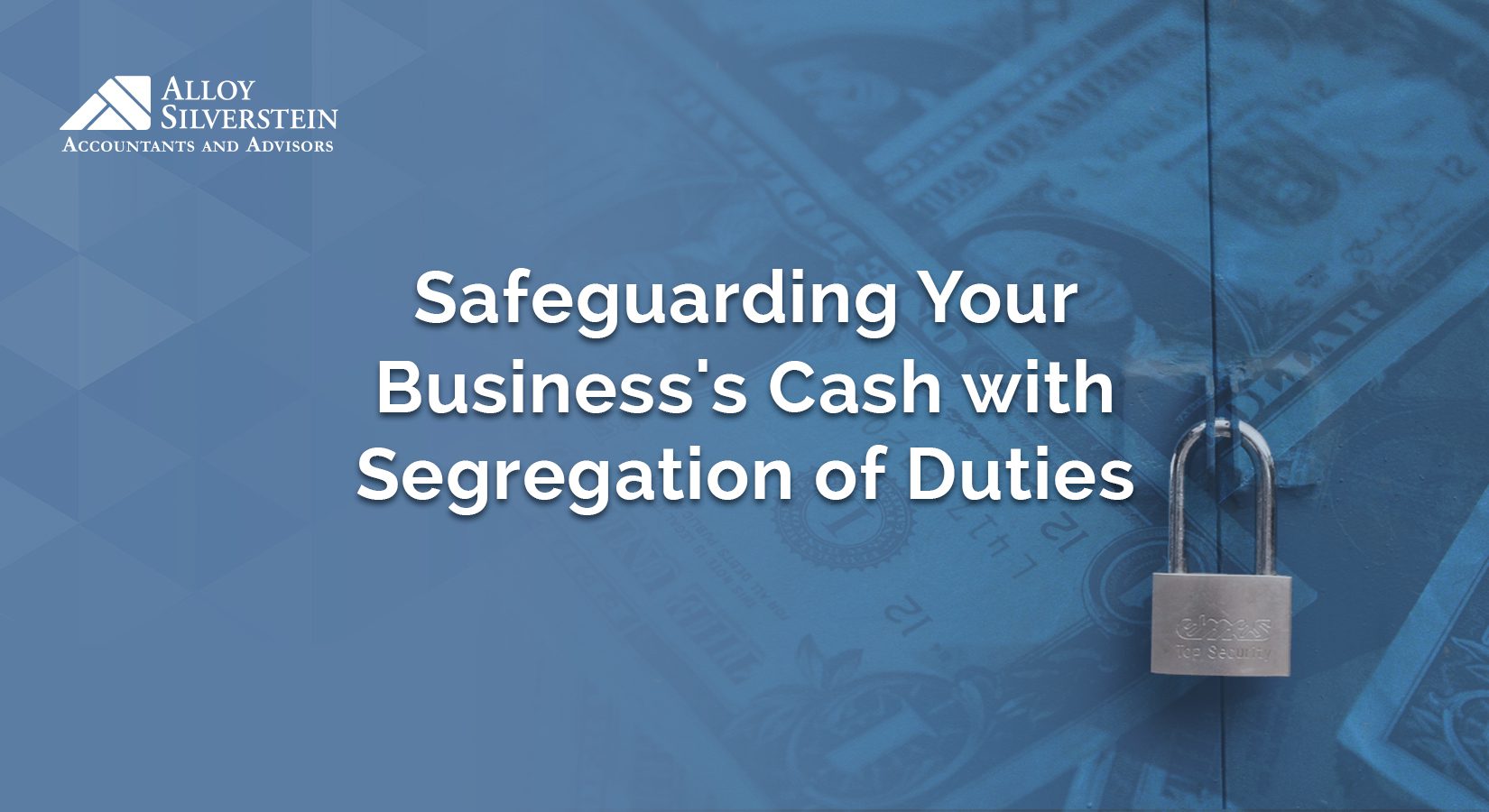

Pop quiz: Is fraud and embezzlement more common in small or large businesses? Unfortunately for small businesses, since they often lack the internal controls that are typically in place at larger organizations, they are more likely to be victims of employee-related fraud.
The best defense for a small business is to implement a segregation of duties framework. By segregating duties, you have one person responsible for each of three different key areas: Authorization of cash expenditures, physical custody of cash, and reconciliation of cash expenditures.
Only a designated, trusted manager should sign checks, authorize electronic payments, or perform fund transfers. This control has a dual purpose: management sees how the company is spending its money, and the cash disbursement function is kept separate from bookkeeping and accounting. The opportunity to embezzle is much higher if the same person signs checks, authorizes electronic transactions, and enters disbursement transactions in the accounting records.
Have an owner or manager occasionally spot check incoming electronic transactions and tie them to the company bank account. If you receive physical checks, have an owner or manager open the mail before passing it on to accounting. That’s one way to detect unusual transactions before they’re recorded in the company books. Alternatively, you might ask someone separate from accounting to open the mail and prepare a deposit slip, or prepare a daily reconciliation of all transactions.
For companies with limited resources, a periodic review of bank reconciliations by someone outside of accounting can provide a mitigating control. Non-accounting personnel performing these reviews will need to be trained. They’ll need to understand the risks involved and the types of unusual or unsupported transactions needing further investigation. Cross-training staff also helps to ensure continuity of operations when accounting employees take vacations or leave the company. Or better yet, bring in an outside accounting expert to conduct periodic audits of key functions.
Executing these tips helps keep better track of cash and can thwart theft before it happens.
Empowering business owners and individuals in South Jersey and Philadelphia to feel confident through proactive accounting and advisory solutions.